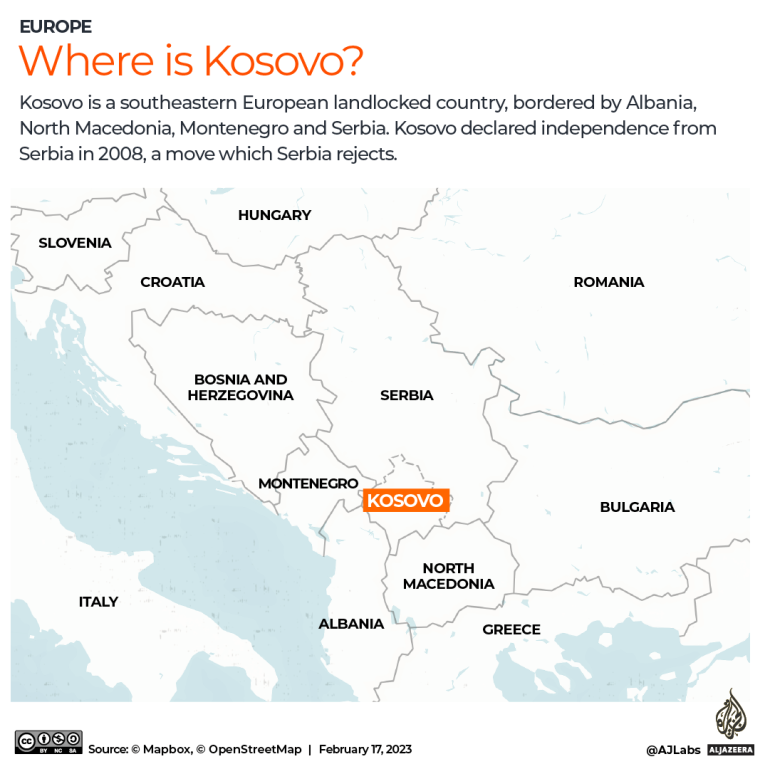Kosovo PM describes the incident near border as ‘terrorist action’ backed by officials from neighbouring Serbia.
Kurti said “masked professionals armed with heavy weapons” opened fire on a police patrol in the village of Banjska, Leposavic, 55km (35 miles) north of the capital, Pristina, at 3am (01:00 GMT) on Sunday.
“Organized crime, which is politically, financially and logistically supported from Belgrade, is attacking our state,” Kurti wrote on his Facebook page. “The government of the Republic of Kosovo and its state institutions are ready and coordinated to respond to crime and criminals, terror and terrorists.”
Kosovo police added that two trucks with no licence plates had blocked a bridge at the entrance of the village.
Three police units were sent to unblock it but came under fire from different positions with different weapons, hand grenades and bombs.
Police managed to push back the attack and take two injured police officers at the hospital in southern Mitrovica.
One of them was dead on arrival, doctors said.
Kosovar President Vjosa Osmani, who is in New York at the United Nations General Assembly, denounced the killing and the “attacks against the Republic of Kosovo’s sovereignty.”
“Such attacks testify once again the destabilizing power of the criminal bands organized from Serbia which for a long time .. are destabilizing Kosovo and the region,” she said.

Serbia has not yet commented on the incident and the accusation.
Tensions have been smouldering for months in the former Serbian province following Kosovo’s decision to install ethnic Albanian mayors in four Serb-majority municipalities last May.
The decision ignited clashes that left more than 90 NATO peacekeeping soldiers and some 50 Serb protesters injured in northern Kosovo.
Ethnic Albanians form more than 90 percent of the population in Kosovo, with Serbs being the majority only in its northern region, near the Serbian border, where a Serb-majority municipalities association is planned.
European Union-sponsored talks on normalising relations between Kosovo and Serbia, two former wartime foes, stalled again last week, with the bloc’s foreign policy chief Josep Borrell blaming Kurti for failing to set up the association of Serb-majority municipalities, which would give them more autonomy.
In February, the EU put forward a 10-point plan to end months of political crises. Kurti and Serbian President Aleksandar Vucic gave their approval at the time, but with some reservations that have still not been resolved.
